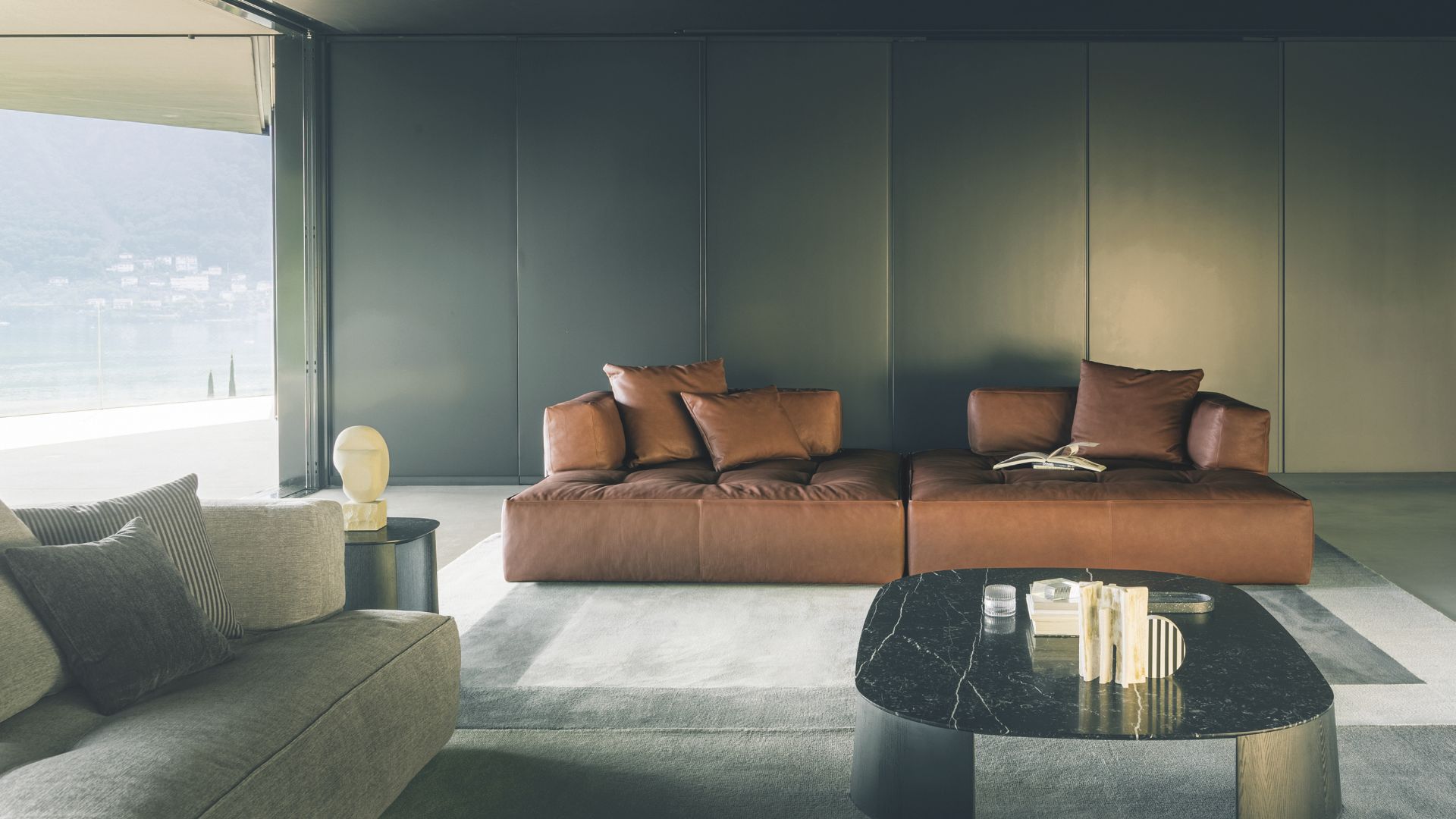Quality, innovation, and collaboration—these values form the perfect trifecta at the heart of Italian design brand Désirée. Since 1968, the company has honed its approach to creating furniture that seamlessly blends design excellence with exceptional comfort, partnering with world-class designers like Marc Sadler. The latest is the Melvil sofa, a bold new interpretation of Bauhaus and modern living.
Merging fine art principles with industrial craftsmanship, the Melvil sofa draws inspiration from the iconic movement, which emerged in Germany in the early 20th century. Founded by architect Walter Gropius, Bauhaus is known for its emphasis on geometric simplicity, functional design, and the harmonious integration of art, craft, and technology.


Designers like Mies van der Rohe and Marcel Breuer, who were pivotal in the movement, prioritised clean lines, practicality, and an industrial approach to materials—values that still resonate in contemporary design. Sadler honours this rich legacy by putting a modern twist on its geometric rigour.
Melivil is composed of three core elements: a deep, capitonné-effect seat, customizable moveable backrests, and a strong black chromed-metal frame. These pieces come together in a modular design, offering a flexible seating arrangement that caters to various preferences and settings.
The sofa’s backrests are not fixed, but adjustable, allowing users to create different configurations depending on their comfort or aesthetic needs. Whether opting for a straight or angled backrest, or mixing both, the Melvil offers endless possibilities for personalization.


What makes Melvil stand out is its adaptability. The modular elements, available in both linear and angular forms, allow for multiple arrangements, from simple, streamlined configurations to more dynamic setups. The sofa is equally suited for a formal seating area or a casual, relaxed lounge, ensuring it fits perfectly in any environment. This flexibility, paired with its clean, geometric design, speaks directly to the Bauhaus principle of functionalism—creating a piece that is not only aesthetically pleasing but also versatile and adaptable to the user’s needs.
The Melvil sofa is not purely utilitarian. The capitonné upholstery adds a touch of richness to the piece, complementing the industrial edge of the black metal frame. The subtle detailing in the stitching enhances the sofa’s sleek silhouette, creating a harmonious balance between softness and structure.


Before designing Melvil, Sadler collaborated with Désirée on a number of other pieces, all reflecting the brand’s vision of emotional expression through design and rooted in the tranquil landscapes of Treviso, Italy. Acquired by Gruppo Euromobil in 1995, Désirée has expanded its focus to sustainability, using eco-friendly materials and recyclable components without compromising on quality. This commitment to circularity is reflected not only in its designs but also in its packaging, which is 100% recyclable.
Available in a variety of luxurious fabrics and leathers, Melvil offers a wide range of customisation options, ensuring it suits various interior styles—from minimalist and modern to more eclectic or traditional settings. Beyond its visual appeal and functional versatility, the sofa is also a testament to Désirée’s commitment to sustainability. Each piece is crafted with responsibly sourced materials, produced with attention to reducing environmental impact, and designed to ensure both beauty and longevity.


In keeping with the Bauhaus tradition, and Désirée’s approach, the Melvil sofa is the latest example of this. Designed not only for its aesthetic allure, the sofa serves a purpose. Its modular structure offers flexibility and comfort, while the ergonomic design ensures lasting support, and the robust materials promise durability for years to come, making it a perfect fit for modern interiors.
link

